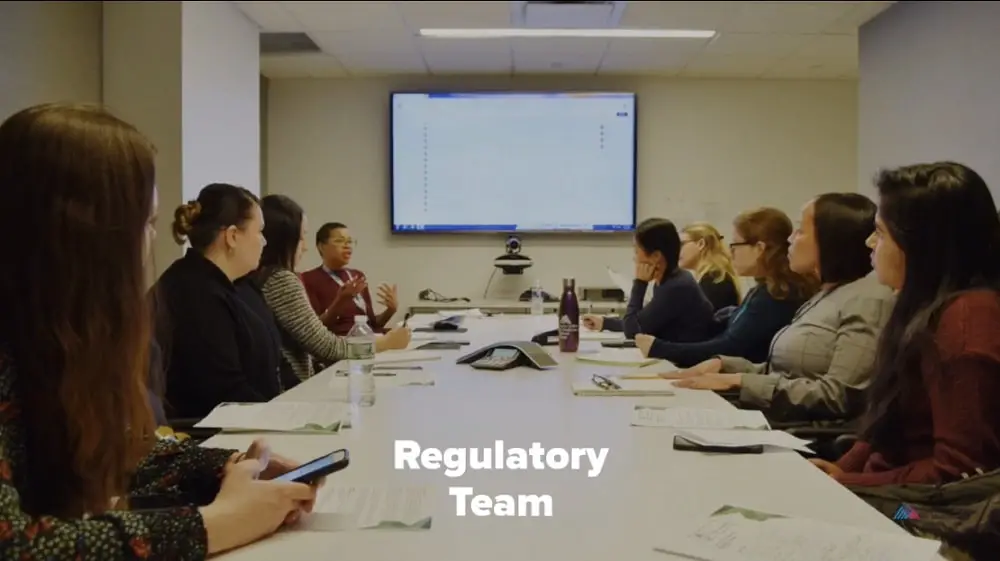Day in the life of
Regulatory Affairs Manager – Tiffany Drummond, MS

A day in the life of a regulatory affairs manager really depends on which side of the research you are on. My expertise is in academic research not industry. At the site level, the regulatory manager is responsible for ensuring day-to-day operations of clinical trials within the regulatory team are running smoothly. This means submitting applications (new studies, amendments, renewals, study closures, serious adverse events, etc.) to the Institutional Review Board; making sure all site regulatory documents are up to date and accurate; resolving regulatory issues (subject eligibility, protocol deviations, patient registrations, drug shipment delays, contracts, activations, etc.) The take home from this question is NO ONE DAY IS THE SAME.
Pros
The pros of regulatory affairs is that we’re always right! Just kidding, but not really. The regulations are in black and white for a reason. They cannot be changed. So, if one understands the regulations, there really is no need to go back and forth, say with a Principal Investigator, over an issue where regulatory has jurisdiction.
Additional pros are that as a regulatory manager, your job is multi-faceted and you work with various departments, which expands your skillset. For instance, one would need to ensure pharmacy, nursing (research & clinical i.e. infusion nursing), contracts, finance, investigators, etc. are on board to activate a study or are aware of changes with the release of an amendment that may affect their work. For instance, a sponsor could adjust the treatment or replace a drug being used. As a regulatory manager, it is your responsibility to inform pharmacy, confirm if the contract/budget needs to be revised, ensure investigators/nursing/coordinators understand the changes, etc. It is a great position to be in to learn all aspects of clinical research.
Cons
The flip side of that is that the responsibility can be stressful. Miscommunication is a major cause of deviations, or missing required steps that need to be taken (“Regulatory didn’t let us know, so we did not do xyz…”). The blame game often falls on Regulatory, but if up to the challenge, the reward is gratifying.
Another con of the job is that it can be very demanding. Regulatory could be the reason a patient does not go on trial, or that a deviation occurred (i.e. there is an error or worse OMISSION of important information in the consent form), or that an amendment was not submitted in time which leads to treatment delays. These are not examples: these are real world situations that have personally happened to me in my career.
Advice to students interested in getting into Regulatory
The great thing about regulatory is that various majors provide the skills you need. Of course, Science is a primary one (secret: the only science I took in college was Astronomy! But looking back I definitely would have taken more biology/chemistry courses). Many Regulatory Managers have degrees in Biological Sciences, English, Business, Law, Finance, even Psychology. I can offer up a little* advice about degrees in “Clinical Research.” I would only move towards this degree if you want to enter into pharma. They prepare you more for that career more so than academic clinical research. I’ve interviewed countless candidates with this degree and they all were trying to break into academia but were currently at or recently left a pharma job. I can also say even being at a director level, if I jumped to pharma, I would have to start at a lower level because again, pharma and site level clinical research run quite differently. Even when submitting to the FDA (i.e. IND application). I have done countless applications for investigators, but submitting for a manufacturer (pharma) is much more detailed and regimented.
I also have started my own brand Opinionated STEM. I want to show that STEM is fun and nothing to be intimidated by, and most importantly that there are so many areas of STEM (i.e. regulatory!) that does not require a medical degree or clinical license. I have a unique corner of the market because I’m not your typical clinical research professional. I have an opinion on everything! (all social media handles are @OpinionatedSTEM- shameless plug for you to check out!)
Regulatory Affairs Managers
plan, direct, or coordinate production activities of an organization to ensure compliance with regulations and standard operating procedures.


.jpg)